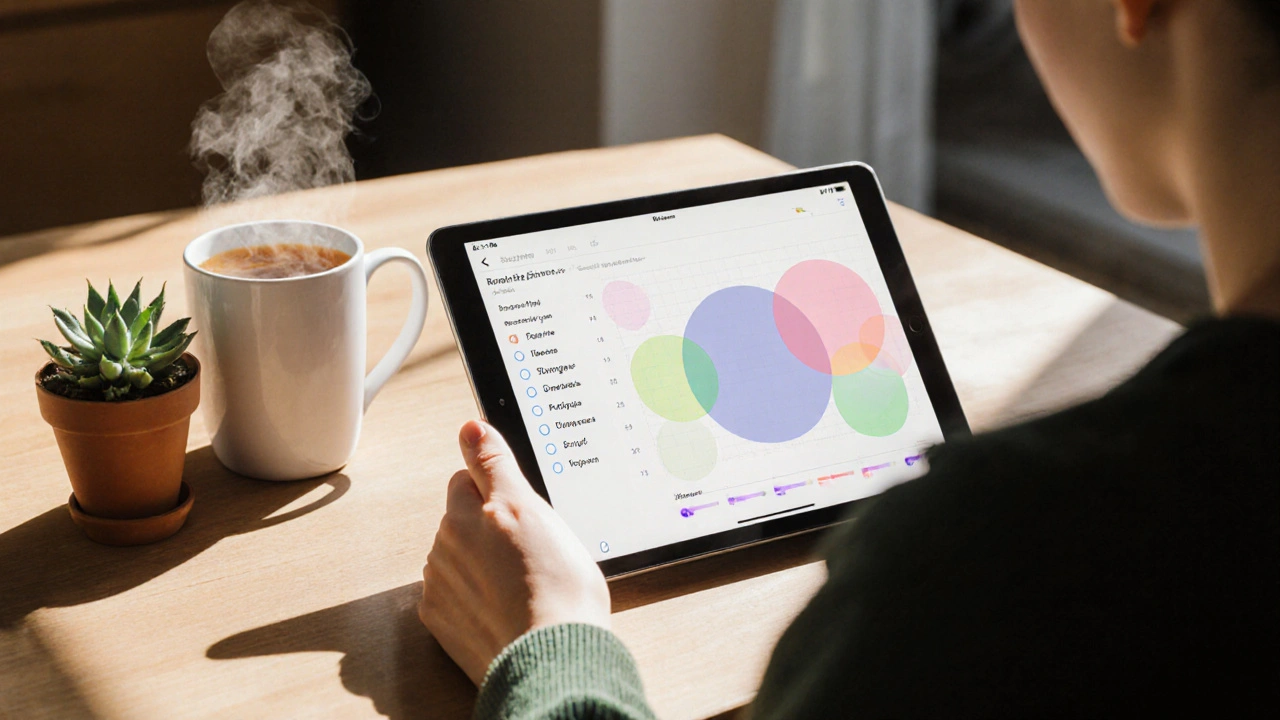IBD Resources – Your Guide to Inflammatory Bowel Disease
When you look for IBD resources, a curated collection of information, tools, and support for people dealing with inflammatory bowel disease. Also known as IBD guide, it helps patients and caregivers navigate diagnosis, treatment, and everyday life. This hub also covers Crohn's disease, a chronic inflammation that can affect any part of the gastrointestinal tract and ulcerative colitis, an inflammatory condition limited to the colon and rectum. Both conditions fall under the broader label of IBD, so IBD resources naturally include them. In practice, effective IBD management requires biologic therapy, medications that target specific inflammatory pathways alongside dietary management, personalized nutrition plans that reduce flare‑ups and support gut healing. These three entities—IBD, biologic therapy, and diet—form a core triangle that shapes most treatment plans.
Diagnosing IBD starts with a mix of symptom review, blood tests, and visual exams. Doctors often rely on colonoscopic evaluation, MRI, or CT enterography to pinpoint inflammation and differentiate Crohn's disease from ulcerative colitis. Knowing the exact type matters because each responds differently to medication and surgery. For example, stricturing disease in Crohn's may need endoscopic dilation, while extensive ulcerative colitis might be a candidate for colectomy. Understanding these nuances helps you ask the right questions at appointments and choose a care team that respects your preferences.
Treatment options have expanded dramatically over the past decade. Traditional 5‑ASA drugs and steroids still play a role, but many patients now start on biologic agents like anti‑TNF, anti‑integrin, or IL‑12/23 inhibitors to control moderate‑to‑severe disease. Some clinicians add immunomodulators such as azathioprine to boost biologic effectiveness and lower antibody formation. Surgical options, while less common, remain essential for complications like fistulas or severe bleeding. The key takeaway: a personalized regimen that blends medication, monitoring, and lifestyle tweaks yields the best outcomes.
Nutrition is the silent partner in every IBD plan. Studies show that high‑fiber foods can aggravate active Crohn's lesions, while low‑FODMAP diets often ease bloating and diarrhea in ulcerative colitis. Equally important is maintaining adequate protein, iron, vitamin B12, and calcium, since chronic inflammation and malabsorption frequently cause deficiencies. Working with a dietitian to create a flexible meal plan—not a restrictive “one‑size‑fits‑all” diet—can reduce flare frequency and improve quality of life. Simple habits like staying hydrated, limiting caffeine, and incorporating probiotic‑rich foods also make a noticeable difference.
Beyond medicine and meals, community support plays a powerful role. Online forums, local meet‑ups, and patient advocacy groups provide emotional relief, practical tips, and up‑to‑date research summaries. Mobile apps now let you track symptoms, medications, and lab results, turning raw data into actionable insights that you can share with your gastroenterologist. Access to reliable IBD resources means you spend less time guessing and more time living.
What You’ll Find Below
The articles and guides that follow dive deeper into each of these topics. Whether you need a step‑by‑step look at biologic selection, a simple food‑swap list for ulcerative colitis, or a checklist for preparing your next doctor’s visit, the collection is organized to give you quick, actionable answers. Browse the list to uncover the specific information that matches your current needs.
Living with Colitis: Practical Coping Strategies and Top Support Resources
- Keith Ashcroft
- |
- |
- 10
Discover effective coping strategies, daily hacks, and top support resources for living with colitis, helping you manage symptoms and improve quality of life.
View more
